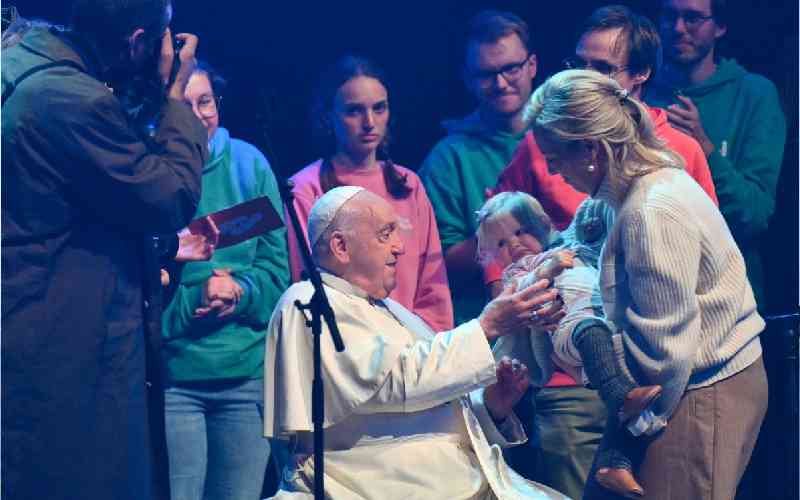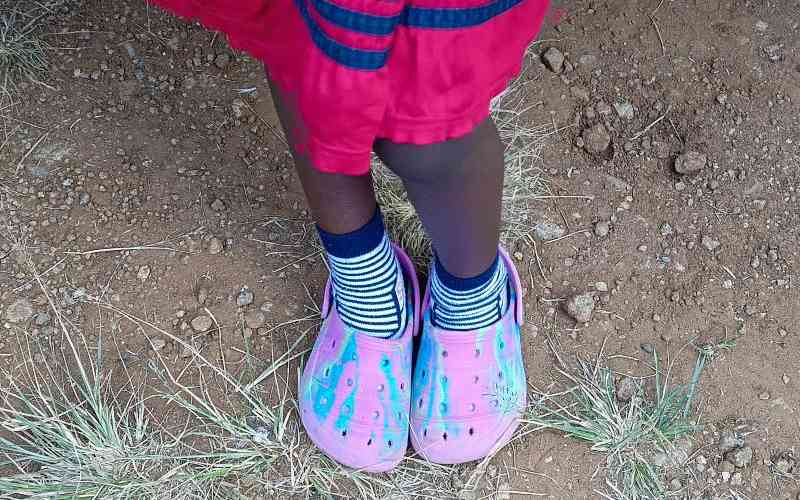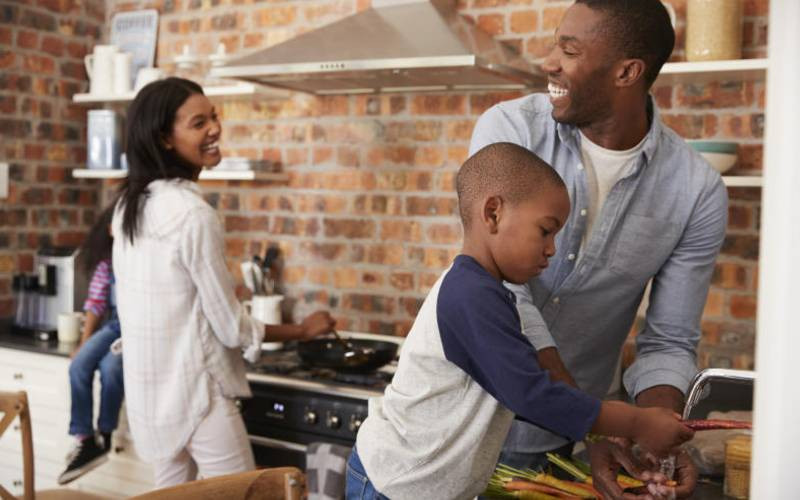They say an addict needs to hit rock bottom before they can turn their life around. And for Emma Monks, this was bringing her first-born into the world while behind bars for burglary with two prison officers by her side.
Then she fell in love with her baby son only to make the devastating decision to kiss his trusting face one last time and give him up for ever. Depths don’t come much darker or deeper.
“I gave him up for adoption because I loved him. I wasn’t sure I could give him what I should give him. I didn’t know if I was strong enough,” she explains.
“I made the biggest sacrifice and when I got out, I owed it to him and myself to stay clean.”
And get clean she did. But that heart-shattering decision was not the only demon Emma had to come to terms with.
She was just seven when she first smoked heroin .
And the pusher? Her own heroin- addict mother.
“How could she have done that to me?” Emma says now.
Her description of the first time it happened borders on the surreal.
“I came down one day and Mum was cooking a fried breakfast and smoking on a foil.
“I remember saying, ‘What’s that, Mummy?’ and she picked me up, sat me on the worktop and put the tube in my mouth and told me to suck. So I did. I don’t remember a lot after that. That might be because it knocked me out.”
It wasn’t just a one-off sick prank. Incredibly, her mother Julie didn’t stop there.
“The next day she brought it up to my bedroom,” says Emma, from Sheffield.
“My brother was out playing. She said it was ‘our secret’. It felt nice to be included in what Mum was doing.”
It soon became a daily habit. While other children were playing games in the street and begging their parents for an after-school treat, she was holed up with her mum looking forward to her next fix.
Stay informed. Subscribe to our newsletter
At 11, she nearly escaped after she was taken into care. But by 16, she was back with her mum – and back to her habit.
It was six years later when she was 22 and giving up her son, Lucas, that she finally escaped the addiction’s grip.
In the 10 years since, she has got clean, met her partner Carl Brown and had three more children – Shaiarna, six, Kourtney, five, and Kartell, two.
Now she finally lives a “normal” life – but with her daughter Shaiarna turning seven in December – the age she was when her own habit began – the past is weighing heavier than ever on Emma.
Struggling to come to terms with her twisted childhood, she has even made contact with Julie, who is also now clean.
Carl, a 35-year-old electrician, protested, understandably. He feared for Emma’s safety. But although Emma can’t forgive and would never trust Julie, now 57, to care for her children – she can’t bring herself to shut her out of her life and will never tire of trying to understand.
“I always knew Mum was different to other mums. She was always in and out of prison for shoplifting and fraud. Dad was too. And Mum was always using drugs from my earliest memories,” she explains.
“But why did she do it to me? When I ask her she starts to cry. She does not know why. I don’t know if she will ever be able to give me a reason. She said she was suffering a breakdown, but that feels like an easy cop-out. Why carry it on?”
Emma is angry she and her brother, who is 10 months older, were even allowed to live with her parents as children.
Her dad, who died last year, was in prison for armed robbery until she was seven, but after his release, he failed to realise that Julie was letting Emma do drugs, even while living under the same roof.
It had been just a few weeks after her first puff that Emma started craving the drug. She says without it she “didn’t feel right”.
“Mum had got me hooked,” she says. “It’s embarrassing to say but I was weeing myself and feeling sick. I didn’t know why but I knew when I took it I felt better.
“Mum did try and refused me after a few weeks. I think it hit her that her daughter was addicted when she saw me being sick. She did start saying no, but I’d threaten to tell my dad.
“Mum didn’t try very hard not to give it to me. The easiest thing was to carry on to shut me up.”
Eventually, Emma was smoking most mornings and evenings. “I learnt to become very secretive,” she says.
Although Emma lost her appetite and weight thanks to the drug and regularly had dark circles under her eyes, she explains there were no other outward signs that she was hooked.
Because she was well-clothed and didn’t look neglected, friends and their parents didn’t comment. Neither did teachers.
“I didn’t go to school that regularly anyway,” she says. “People on the estate, Mum’s friends, knew she was a user. She wasn’t the only one to be honest, but they wouldn’t have dreamed I was involved.”
Age nine, when Julie returned briefly to prison, Emma went to stay with her grandparents and had to endure “cold turkey” withdrawal for a week. She did not tell them what was happening and her grandparents assumed she was ill.
“I was shivering and weeing the bed. They took me to the doctor who said I might be suffering from separation anxiety,” she says.
But back with her mum again, incredibly, the cycle began again and continued until she was 11. Emma was even scoring her own heroin at times.
Then her mum returned to prison for dealing drugs and rather than go and stay with her grandparents again, Emma opted to go to a children’s home, where she believed she would still be able to get hold of heroin.
However, once she was there without the influence of her mother, the little girl had a breakdown.
“I couldn’t keep doing it – I was drained,” she says. Confused and desperate, she even attempted suicide with prescription drugs.
It was after that she broke down and confessed to her care worker.
Emma was taken to live at a youth rehab clinic where she stayed for a year. She was forced to withdraw without the substitute drug methadone – usually given to recovering addicts –which she was too young to take.
“I was in a real state,” she recalls. “But in a way I was just glad it was out. I felt huge relief that I was getting help.
“But the withdrawal was terrifying – the stomach cramps, the sweating, being sick. And your legs won’t stay still. You want to chop them off to take the pain away.”
Eventually, her grandparents were allowed to visit her, but Emma felt only shame and guilt. So much so that she opted to return to care after her stint in rehab.
“I became depressed,” she admits. “I began to realise my mum had done something wrong.”
Julie lost her parental rights and Emma describes the years that followed with foster parents as some of her happiest.
But Julie was allowed to write and the pair stayed in touch. When she was 16 Emma was free to return to her mum.
She did –and that’s a decision she will always regret.
“She was clean, which was nice,” she recalls. “But by the time I moved back in with her, she was using again.”
Still impressionable, Emma soon fell back into her old habit.
She adds, quietly: “Using was the only thing we did together. In a sad way, it made us closer. We never did normal mother and daughter things.”
Her life fell into shreds. Her education went out of the window and crime and drugs dominated. Finally, both she and Julie ended up in prison at the same time for burglary.
Emma was also six months pregnant through a casual relationship. She gave birth to Lucas with no antenatal preparation and only two prison officers rotating on shifts for support.
It was harrowing. And she says making the decision to give him up was the worst moment in her turbulent life.
“I didn’t know then that I could lead a drug-free life,” she explains. “I didn’t think I could give him a happy or safe life.”
“I was worried I would damage or hurt him. Having my mum as a role model didn’t fill me with confidence.”
Emma wrote a story book for Lucas which social workers tell her they will give to him when he is at an age to understand. Inside, she put photos she had taken with him and an account of her story.
“Will he understand why I did it?” she asks.
“Two years down the line, I had met Carl and had another baby. But I didn’t know then if I would be able to turn my life around.
“I have never discussed Lucas with my mum. I hold her responsible but I don’t think she can grasp that what she did ultimately led me down the road leading to me giving up my baby.”
“As a parent now, I am in even more disbelief. My oldest daughter is now six.”
“I was just a year older than her when Mum introduced me to heroin.”
"When I look at my little girl, so innocent, I can’t believe what Mum made me do.”
Julie admits she knows she was in the wrong and feels guilty, although she insists she told her daughter to stop.
She adds: “I have to live with it for the rest of my life. But Emma had plenty of opportunities to turn her life around.”
 The Standard Group Plc is a
multi-media organization with investments in media platforms spanning newspaper
print operations, television, radio broadcasting, digital and online services. The
Standard Group is recognized as a leading multi-media house in Kenya with a key
influence in matters of national and international interest.
The Standard Group Plc is a
multi-media organization with investments in media platforms spanning newspaper
print operations, television, radio broadcasting, digital and online services. The
Standard Group is recognized as a leading multi-media house in Kenya with a key
influence in matters of national and international interest.
 The Standard Group Plc is a
multi-media organization with investments in media platforms spanning newspaper
print operations, television, radio broadcasting, digital and online services. The
Standard Group is recognized as a leading multi-media house in Kenya with a key
influence in matters of national and international interest.
The Standard Group Plc is a
multi-media organization with investments in media platforms spanning newspaper
print operations, television, radio broadcasting, digital and online services. The
Standard Group is recognized as a leading multi-media house in Kenya with a key
influence in matters of national and international interest.








